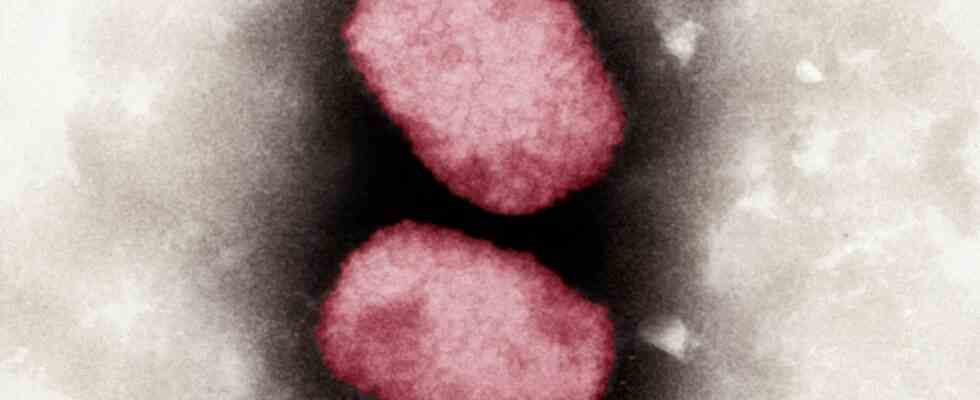As the number of monkeypox infections continues to rise, experts struggle to characterize the seriousness of the situation. The World Health Organization (WHO) convened a committee of experts for Thursday afternoon to decide whether the current development constitutes an international health emergency. A decision is expected on Friday at the earliest.
The declaration of this “emergency of international concern” is the highest alert currently available to the WHO. It is rung when an infection is new or unexpected, when it poses a threat to more than one country and might require a coordinated international response. The classification of an outbreak as an emergency is intended to increase awareness of what is happening. The assessment has no direct impact on the population. In parallel to its assessment of the situation, the panel of experts gives recommendations on how to proceed against the respective disease.
So far, emergency committees have met nine times, six times they called the international alarm, including for two different Ebola outbreaks. Currently, the emergency status applies to the corona pandemic and, since 2014, to polio, whose occasional cases endanger efforts to eradicate the disease.
Both the individual decisions of the emergency committees and the warning system itself have been repeatedly criticized in the past. That’s how it was independent panel of experts to assess the corona pandemicthat the WHO declared the emergency too late after the discovery of Sars-CoV-2. Basically unfavorable criticize expertsthat the regulations only allow an all-or-nothing decision. From their point of view, a system that offers several warning levels would make more sense.
Almost 600 cases registered in Germany
Monkeypox has been spreading in many countries, especially in Europe, since the beginning of May. The WHO counted until mid-June more than 2100 cases in a total of 42 states. The number has increased significantly in the meantime. On Wednesday, the European disease control agency reported more than 2,700 cases in Europe alone. In Germany, almost 600 diseases from almost all federal states have been registered so far.
What is happening is also unusual. What is new is that the pathogen is circulating in more and more countries where it was not previously widespread. Until recently, monkeypox was observed almost exclusively in parts of Africa; only very rarely were they introduced from there to other regions. These outbreaks were always contained fairly quickly. The widespread distribution also raises concerns that the pathogen will find new animal hosts from which it can then spread back to humans. So far, however, there is no evidence of this.
What is also new is that many transmissions apparently took place through sexual activities, especially between homosexual and bisexual men. The virus is passed on through close physical contact, it is less contagious than Sars-CoV-2. Most cases of the current outbreak have been mild so far. As of mid-June, one death was reported worldwide.
So far, the WHO, the RKI and the European disease control agency ECDC have all assessed the health risk for the general population as low. Globally, however, the WHO considers the risk to be moderate because the cases span so many countries in different regions.

